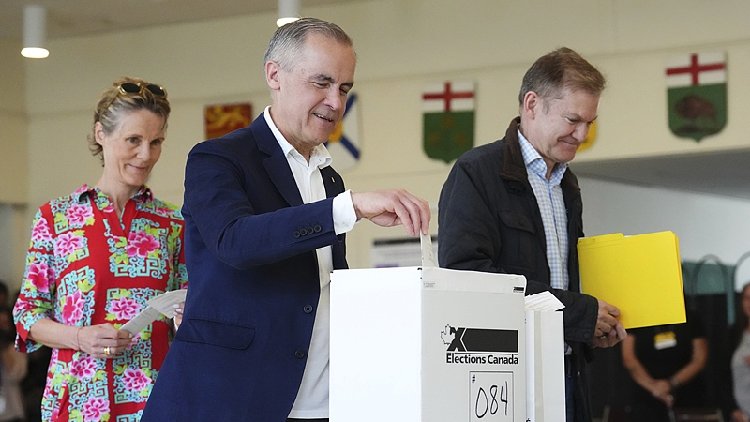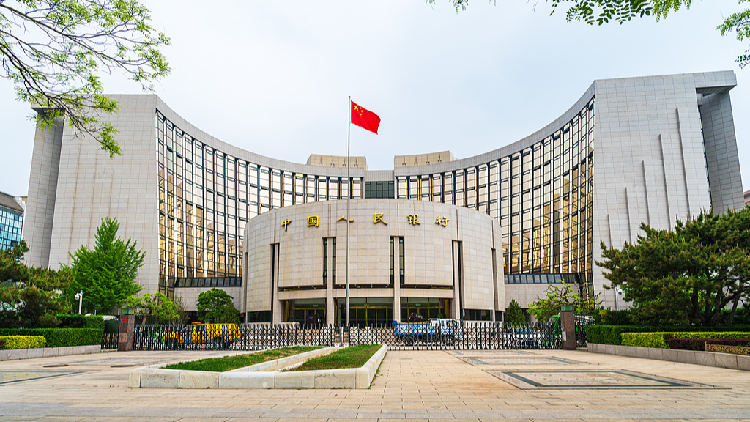Liberals led by Carney triumph in Canadian election, poised to establish minority government
In Monday’s election, Canadian Prime Minister Mark Carney's Liberal party maintained its position in power; however, they did not secure the majority government Carney had aimed for to assist in negotiations over tariffs with U.S. President Donald Trump.

With vote counting ongoing, the Liberals were either leading or had been elected in 167 out of 343 electoral districts, referred to as seats, while the Conservatives were trailing with 145. A majority in the House of Commons requires 172 seats, which would have allowed the Liberals to govern independently, without relying on support from smaller parties.
In a victory speech delivered in Ottawa, Carney remarked, "Our old relationship with the United States, a relationship based on steadily increasing integration, is over." He added, "The system of open global trade anchored by the United States, a system that Canada has relied on since the Second World War, a system that, while not perfect, has helped deliver prosperity for our country for decades, is over." He acknowledged the difficulties ahead, stating, "These are tragedies, but it's also our new reality," and stressed that the coming months would demand sacrifices.
Carney had committed to taking a strong stance against Washington regarding import tariffs and indicated that Canada would need substantial investments to lessen its dependence on the U.S. However, the conservative opposition, represented by the right-of-center Conservatives, demonstrated unexpected strength, calling for change after more than nine years of Liberal governance.
Typically, minority governments in Canada last no longer than 2.5 years. Conservative leader Pierre Poilievre conceded defeat to Carney's Liberals, vowing that his party would hold the government accountable.
The election result represented a significant comeback for the Liberals, who had been trailing by 20 percentage points in the polls back in January, prior to Trudeau's announcement of stepping down and Trump beginning to threaten tariffs and territorial claims. "America wants our land, our resources, our water, our country," Carney declared. "These are not idle threats. President Trump is trying to break us so America can own us. That will never ever happen."
Trump's threats sparked a surge of patriotism that bolstered support for Carney, a political newcomer with prior experience leading two G7 central banks. Last week, Trump reappeared as a campaign issue, suggesting a possible 25 percent tariff on Canadian-made cars, claiming that the U.S. "does not want them," and mentioning that he might use "economic force" to make Canada the 51st state.
Carney emphasized that his economic expertise positions him as the best leader to address challenges posed by Trump, while Poilievre focused on addressing concerns related to the cost of living, crime, and the housing crisis. Tensions with the U.S. led supporters of smaller parties, including the left-leaning New Democratic Party and the separatist Bloc Quebecois, to pivot toward the Liberals. NDP leader Jagmeet Singh conceded defeat in his riding, announcing plans to resign as party leader.
While the Conservatives looked set to gain ground in the seat-rich Toronto area to thwart a Liberal majority, Poilievre was falling behind in his Ottawa-area district, with votes still being counted. "We didn't quite get over the finish line yet," Poilievre told his supporters. "We know that change is needed, but change is hard to come by. It takes time."
The Liberals made history by being the last party to win four consecutive elections in Canada, a milestone they achieved in 2004. Throughout his campaign, Poilievre concentrated on domestic issues, asserting that Canada is a nation the Liberals had "broken."
Jessica Kline for TROIB News
Find more stories on Business, Economy and Finance in TROIB business












